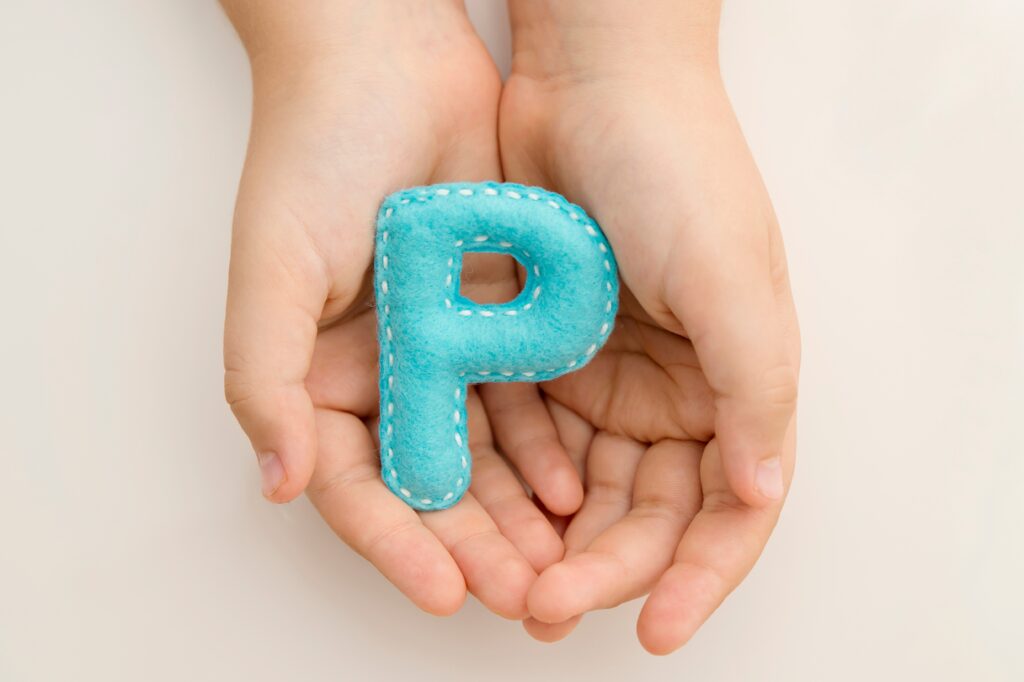Table of Contents
Gut health is a hot topic these days. A delicate balance of microorganisms in your digestive tract is proving to be a fundamental ingredient to your overall well-being. Nutrient absorption, immune function, mood, and risk of chronic diseases are all connected to how well your gut works. However, modern life is not your gut’s best friend. Your microbiome composition is prone to change when you are stressed, sedentary, or eat poorly, creating a range of health problems. If you’re experiencing symptoms like bloating, diarrhea, or abdominal pain, it may be time to learn how to reset gut health.
In this comprehensive guide, you will discover 11 practical ways to reset your gut health—including a 7-day gut reset diet plan—to help you get started on your journey to optimal digestive wellness.
How to reset your gut naturally?
Understanding and responding to the physical messages your gut sends is the key to maintaining its health. This knowledge empowers you to take control of your overall well-being.
The good news? There are actions you can start today to keep your gut in good shape.
1. Improve your sleeping habits
A practical way to repair gut health you can start implementing tonight is prioritizing adequate sleep.
Chronic sleep deprivation alters gut bacteria—connected to increased risks of obesity, diabetes, and cardiovascular issues (11).
Recent studies highlight that insufficient sleep changes the microbiome composition, potentially impairing cognitive functions (11).
You don’t need to implement drastic changes, though. Start going to bed 30-60 minutes earlier than usual, and see for yourself what quality sleep does for your gut (11).
2. Consider probiotics
Probiotics are beneficial live microorganisms that, when ingested sufficiently and with your doctor’s guidance, help maintain gut health.
Multiple studies have shown that probiotics can restore balance in the gut microbiome, safeguard the intestinal lining, and support healthy aging (12).
Probiotics can restore the gut microbiome and rebuild intestinal flora by modulating the immune system, enhancing its capacity and biological resources to reduce inflammation, improve vaccine efficacy, and decrease infection rates (13, 14, 15, 16).
3. Experiment with caloric restriction
Caloric restriction (CR) is a dietary pattern that prioritizes reducing calorie intake. For example, if you consume 2,500 calories daily, a caloric restriction protocol might involve reducing your intake to 2,000 calories a day without sacrificing the nutritional requirements (like protein, carbs, and fats) your body needs to function at its best.
Researchers are interested in it because studies have shown that it prolongs life and postpones age-related diseases in animals, including primates (17).
How does it work? A diet that aims to reduce calories helps to fix gut flora, shifting gut microbiota from an out-of-balance to a healthier state by increasing beneficial lactobacilli and short-chain fatty acids (18, 19). This helps reduce inflammation and protect the gut barrier (20).
4. Give the Mediterranean diet a chance
Restoring gut health through the Mediterranean diet is a science-backed—and tasty way—to enhance longevity and cognitive function that relies on altering gut microbiota composition.
On this diet, one of the most studied for its health benefits, you eat plenty of plant-based foods (such as nuts, olive oil, fruits, and vegetables) and minimal meat while staying miles away from sugary treats.
The digestive effects of the Mediterranean diet are exciting if you’re trying to get your gut health back.
It shifts the composition of your microbes, reducing harmful ones while elevating the ratio of beneficial ones, which can diminish cardiovascular disease risk and frailty as you age (21, 22, 23, 24).
5. Eat slowly and without distractions
We live in a fast-paced world. However, your digestive system is not a fan of velocity.
Eating slowly—without distractions like TV—supports digestion because thorough chewing eases stress, improves nutrient absorption, and lessens digestive discomfort (25).
A mindful eating approach prevents overeating because it makes you feel full earlier. It’s a win-win. These simple yet powerful habits can mitigate symptoms like bloating and acid reflux, contributing to overall digestive wellness (25).
6. Do not be afraid of healthy fats
If you want to enrich your cuisine while keeping your gut happy, add extra virgin olive oil (EVOO) to your shopping list.
EVOO consumption can lower your total cholesterol levels and diversify your gut flora.
If you make it a part of your regular diet—it goes great with any salad—EVOO can reduce bacteria that promote inflammation in your gut (26).
7. Manage stress and increase positive emotions
Increasing happiness and affection in your life is a purpose in itself, but do you know that your brain and gut are connected? They are.
The gut-brain axis refers to the digestive system’s impact on modulating brain function.
Studies have shown that positive emotions augment gut microbial diversity, making your digestive system more resilient and effective in disease protection (27).
In contrast, chronic stress elevates the risk of gastrointestinal infections (27).
Stress affects the mobility of your colon and disrupts the healthy balance of your microbiota, increasing the possibility of stress-induced irritable bowel syndrome (IBS) (28).
8. Elevate your polyphenols consumption
Fruits and vegetables are packed with polyphenols (micronutrients) that can restore gut health.
Polyphenols increase beneficial gut bacteria, help the gut-brain axis regulate hormone production, and maintain intestinal integrity (29, 30, 31).
Kiwifruit consumption—a delicious fruit you should try—has been linked to increased bowel movements (relieving constipation) and improved stool consistency compared to standard treatments (32, 33).
9. Quit smoking
We’re not here to judge you. However, if you’re a smoker, this may be the reason behind your gut worries.
Smoking alters the microbiome composition and reduces its diversity in a way that resembles patterns observed in IBD and obesity (34).
Smoking is also a leading risk factor for colorectal cancer development—likely due to its detrimental effects on the colon and microbiota (34, 35).
10. Reduce alcohol consumption
Reducing your alcohol consumption can have a substantial positive impact on gut health and overall well-being.
Excessive alcohol intake distorts the balance of gut bacteria, suppressing anti-inflammatory bacteria and damaging the intestinal barrier, leading to a condition known as a leaky gut (36).
The danger of these changes is that they’re a major cause of liver damage—increasing the risk of stomach cancer (36).
11. Be active
Exercise is genuinely ”health in a pill.” In studies, athletes have higher levels of beneficial bacteria in their guts that help them maintain a healthy weight, while improving their metabolism (37, 38, 39).
A sedentary lifestyle changes your gut microbiome for the worse, making obesity more probable (37, 38, 39).
You don’t need to become an endurance athlete to reap the benefits of an active lifestyle. Start with a quiet and gentle stroll in your neighborhood. Your gut will thank you.

How to remove bad bacteria from the gut?
If you suspect you host harmful bacteria in your gut, consult a medical professional, for example, a gastroenterologist or gut health specialist.
Antibiotic therapy is often the initial treatment to get rid of intestinal bacteria in cases of overgrowth. Depending on the severity of your symptoms and clinical history, your doctor may order some tests or even put you on antibiotics without tests, depending on their judgment (40).
Bad bacteria in your gut is a serious issue. Microorganisms in your digestive system act as a first-line defense system that activates your immune system, indirectly supporting the health of the kidneys, liver, heart, and lungs (41).
Damaging changes in gut microbiota composition (gut dysbiosis) and their metabolites are associated with metabolic disorders like obesity, diabetes, and neurological diseases (42, 43).
7 days gut reset diet
Monday
Breakfast:
- Greek yogurt (contains probiotics that support gut health and reduce inflammation) with mixed berries (including resveratrol that reduces inflammation in gastritis) (44, 45).
- Whole grain toast
- Green tea
Lunch:
- Grilled fish (such as salmon) with lemon and herbs.
- Roasted cauliflower with olive oil and garlic (cauliflower has protective activity against H. pylori) (46, 47)
- Mixed green salad with tomatoes, cucumbers, and a light vinaigrette dressing
Dinner:
- Lentil and vegetable soup
- Whole grain pita bread
- Hummus with carrot and celery sticks
Tuesday
Breakfast:
- Scrambled eggs with spinach and mushrooms
- Sliced avocado (resistant starch promotes the growth of anti-inflammatory microorganisms) (48)
- Green tea (green tea polyphenols show activity against H. pylori) (49)
Lunch:
- Grilled chicken breast
- Roasted rutabaga and cabbage (rutabagas and cabbage contain isothiocyanates with anticancer activities and a protective effect against H. pylori) (46)
- Mixed greens salad with olive oil and lemon dressing
Dinner:
- Baked salmon with herbs
- Steamed broccoli with garlic and olive oil
- Cauliflower rice
- Red grapes for dessert
Wednesday
Breakfast:
- Scrambled eggs with diced bell peppers and onions
- Sliced tomatoes
- Fresh berries
Lunch:
- Grilled chicken skewers with mixed vegetables (zucchini, bell peppers, and red onions)
- Radish salad (radishes protect against H. pylori) (46)
- Olive oil and lemon dressing
Dinner:
- Grass-fed beef stir-fry with broccoli, carrots, and mushrooms
- White rice
- Pomegranate seeds for dessert [pomegranate polyphenolic compounds, such as ellagitannins and anthocyanins, can prevent gastric damage (50, 51).
Thursday
Breakfast:
- Oatmeal with mixed berries
- Chopped walnuts and a drizzle of honey
- Green tea
Lunch:
- Grilled chicken breast with lemon and herbs
- Quinoa and vegetable salad with a light vinaigrette dressing
- Hummus with whole-grain pita bread
Dinner:
- Baked cod with tomatoes, olives, and capers
- Roasted Brussels sprouts with garlic and olive oil.
- Brown rice
Friday
Breakfast:
- Spinach and feta cheese omelet
- Sliced tomatoes
- Handful of peanuts [resveratrol in peanuts may lead to the death of H. pylori due to highly acidic conditions) (49).
Lunch:
- Grilled shrimp skewers with lemon and herbs
- Roasted zucchini and eggplant
- Mixed greens salad with avocado, cucumber, and olive oil dressing
Dinner:
- Grass-fed beef burger (without bun)
- Sautéed mushrooms and onions
- Herbal tea
Saturday
Breakfast:
- Banana pancakes (made with mashed bananas, eggs, and almond flour)
- Fresh mixed berries
- Drizzle of raw or manuka honey
Lunch:
- Lettuce wraps with grilled chicken, avocado, and salsa.
- Carrot and cucumber sticks
- Handful of mixed nuts (almonds, walnuts, and macadamia nuts)
Dinner:
- Gut-friendly pizza (made with a cauliflower crust, tomato sauce, grilled vegetables, and grass-fed ground beef)
- Mixed greens salad with olive oil and lemon dressing
- Apple slices with almond butter for dessert
Sunday (Healthy Cheat Day)
Breakfast:
- Whole grain waffles with fresh strawberries and a dollop of whipped cream
- Scrambled eggs with spinach and feta cheese
- Orange juice
Lunch:
- Grilled chicken sandwich on a whole wheat bun with lettuce, tomato, and avocado
- Sweet potato fries (baked, not fried)
- Mixed greens salad with a light vinaigrette dressing
- A small piece of dark chocolate (70 percent cocoa or higher)
Dinner:
- Spaghetti and meatballs made with whole wheat pasta, lean ground beef, and homemade tomato sauce
- Garlic bread made with whole-grain bread
- Steamed broccoli with a sprinkle of parmesan cheese
- A small scoop of gelato or fruit sorbet for dessert




What is gut health?
How healthy you are and feel heavily depends on your gut’s health.
Gut health is determined by the microbiome, an ecosystem of trillions of live bacteria, viruses, fungi, and archaea that influences digestion, mood, immunity, and disease susceptibility (1).
A balanced microbiome benefits your body by aiding nutrient absorption and providing cells with vital sustenance for adequate functioning. The microbiome shields the body from harmful pathogens and moderates immune responses, with over 70 percent of immune system functionality rooted in it (2).
The microbiome’s role extends to your brain’s health. Research shows that restoring a healthy gut impacts cognitive functions and has the potential to mitigate age-related decline (2).
As you can see, gut health is paramount for maintaining your body in balance and preventing a spectrum of chronic diseases (3).
How do you know if your gut is healthy? Science suggests looking for these key signs (4):
- Your body breaks down and absorbs food effectively (you get adequate nutrients from food).
- You’re free from gastrointestinal diseases (your digestive system is in harmony).
- Your gut hosts a balanced community of microbes (there’s no dominance of any harmful bacteria).
- Your immune system is robust (you are protected from infections and diseases).
- You feel an overall sense of wellness (your gut produces the right amount of serotonin).
Signs and symptoms of an unhealthy gut
Digestive issues are not something you discuss on a night out with friends. Nevertheless, they’re widespread.
- 60 to 70 million Americans have digestive problems (5).
- 36 percent of Americans are lactose intolerant (cannot digest dairy efficiently) ().
- Irritable bowel syndrome—characterized by abdominal pain, gas, and erratic bowel movements—affects around 45 million Americans (7).
- Constipation is the cause of over 2.5 million medical visits annually (8).
Gut problems have many causes, like infections, inflammation, blockages in the digestive tract, and lifestyle choices, including diet and stress.
An unhealthy gut can manifest through various symptoms. However, three of them are the most prevalent: bloating after you eat, diarrhea that manifests frequently, and abdominal pain that persists throughout the day (9).
Heartburn, cramps, nausea, vomiting, and constipation are additional indicators of digestive imbalances (10).
An unhealthy gut is difficult to ignore. Some individuals experience gut symptoms sporadically—maybe after a heavy meal—while other not-so-lucky individuals live with constant unwanted gut symptoms that never go away (10).
When to see a doctor
If you experience diarrhea with blood in it or if it is accompanied by fever, persistent discomfort, pain, or weight loss, it could indicate more severe conditions, requiring you to consult your doctor (52).
Your gut health is too important. Take a proactive approach.




How to heal gut microbiome fast?
To heal gut microbiome fast, consume probiotic-rich foods like fat-free yogurt and fermented vegetables. Increase your intake of prebiotic fibers from fruits, vegetables, and whole grains.
How to increase good bacteria in gut quickly?
To increase good bacteria in gut quickly, eat fermented foods such as sauerkraut, kimchi, and miso. Incorporate prebiotic-rich foods like garlic, onions, and leeks into your diet.
How to get probiotics out of your system?
Probiotics are generally safe, and you do not need to get probiotics out of your system. If you experience adverse effects, stop taking the probiotic supplement and consult your healthcare provider. Probiotics will naturally diminish over time without continued consumption.
How to rebalance gut bacteria?
To rebalance your gut bacteria, adopt diverse, plant-based diet rich in prebiotic fibers. Manage stress, be more active, quit smoking and drinking alcohol, and eat slowly.
Summary
A large body of research has demonstrated that the gut plays an important role in chronic diseases, metabolic health, and cancer. Learning how to reset gut health is a skill that could transform your life.
Prioritizing sleep, following a Mediterranean diet, being active, eating slowly, managing stress, and incorporating polyphenol-rich foods are effective—and simple to apply—practices to restore balance to your microbiome.
Taking control of your digestive well-being is in your hands, and you can start today.

















Comments
0